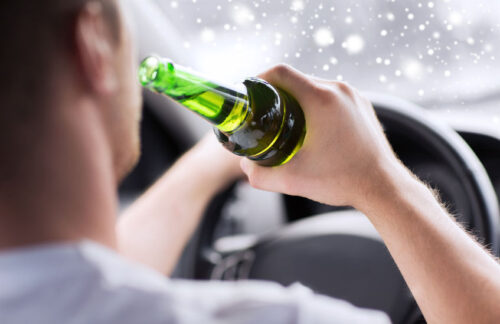Individuals who experience the consequences of driving while intoxicated discover that Texas DWI laws call for strict penalties. People are hurt or killed in car accidents every day by drunk drivers who believe they are still able to get behind the wheel without any problems occurring. We strongly encourage all Texas drivers to think ahead and make arrangements for a designated driver when needed, to avoid unnecessary tragedies.
Texas DWI laws allow a blood alcohol concentration (BAC) no higher than 0.08. Several factors can affect the level of a driver’s impairment, more or less, regardless of the level of their blood alcohol concentration. For example, the level of impairment after consuming alcohol can be affected by a person’s body weight, gender or age; how often alcohol is consumed; or whether alcohol is consumed on an empty stomach.
A first offense of Texas DWI laws can result in suspension of a driver’s license for up to 12 months. The driver can apply for a hearing to receive a restricted license, and if granted they can continue to commute between home and work. Other Texas DWI penalties for a first offense can include 3-180 days in jail, a fine up to $2,000, or an annual fee of $1,000-$2,000 for three years to come in order to retain driving privileges. Other restrictions and penalties come into play if there was a child under the age of 15 as a passenger in the driver’s car at the time of their DWI offense – including a 180-day license suspension, heavier fines up to $10,000 and up to 2 years in state jail.
With a second Texas DWI laws offense the fine increases to $4,000, 30 days to 12 months in jail, a 2-year license suspension, and an annual fee of $1,000 (year 1), $1,500 (year 2) and $2,000 (year 3) in order to retain driving privileges. In addition, an ignition interlock device will be installed in the individual’s vehicle, which will restrict their driving to that vehicle only. After becoming eligible for a restricted license or Texas license reinstatement, an AAMVA Uniform Financial Responsibility Form – a Texas SR22 certificate – must be filed with the Texas DPS.
Information about reinstating your driver’s license, SR22 certificates and drug or controlled substance offenses can be found on the Texas DPS website.
The following articles on our website are also related to Texas DWI laws:
- Texas DUI Insurance
- SR22 DUI Insurance
- I have no car but need SR22 insurance
- Non Owner SR22 vs SR22 Insurance
UltraCar Insurance will find the best Texas SR22 insurance solution satisfy your Texas DWI laws requirement. We’ll quickly file your SR22 certificate with the Texas DPS, so you can reinstate your driving privileges as soon as you meet the state’s requirements. We issue Texas SR22 owner and non owner certificates, depending on your needs. Start a quote now or speak with one of our licensed insurance agents for a free, no obligation consultation.

